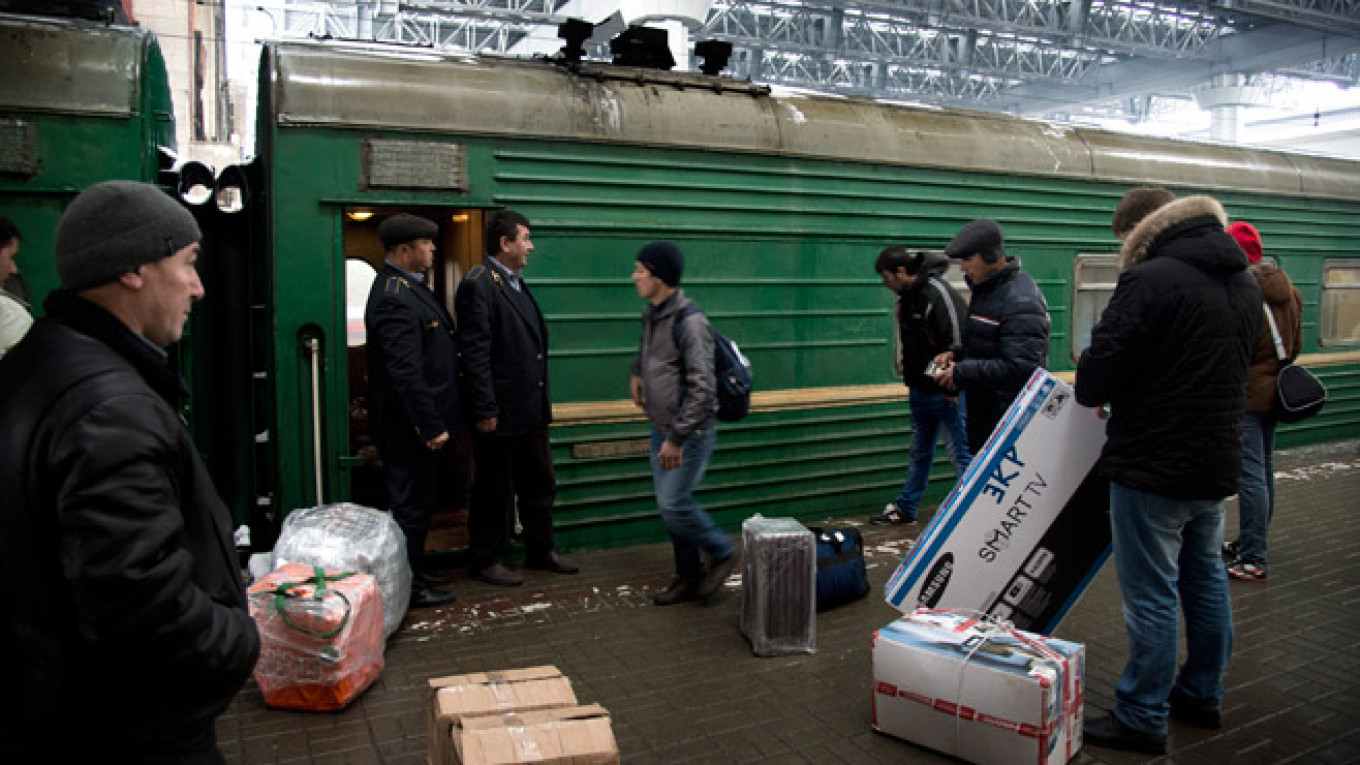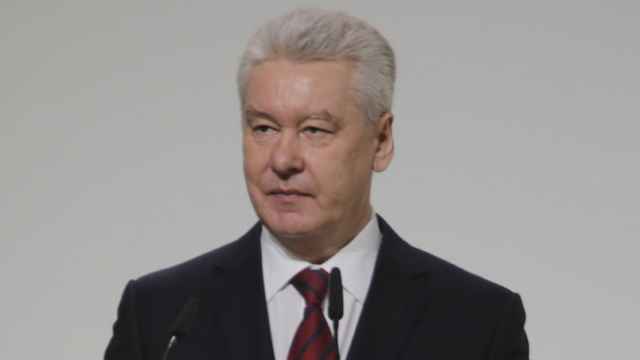The influx of migrant workers into Russia has declined by 8 percent since the ruble began sinking in value several months ago, the Federal Migration Service said Monday.
In addition to fewer workers arriving in the country, those already residing in Russia have been sending less home in remittances, Konstantin Romodanovsky, head of the FMS, said Monday in comments carried by RIA Novosti.
According to data provided by the Central Bank of Russia, he said, the amount of funds sent abroad via wire transfers from Russia — a common practice among migrant laborers — had fallen by 11 percent in the second half of 2014 compared to the same period of 2013, RIA Novosti reported.
Despite these figures, Romodanovsky attributed the dwindling number of migrant workers to the New Year's holidays, saying the 8 percent fall was likely just a "temporary reduction at the start of the year, which was probably connected with the holidays," RIA Novosti reported.
"The number of those working legally has climbed by one-third and the number of those who did not appeal to the FMS [for a visa extension] on time fell by 11 percent," Romodanovsky said, noting that the figures excluded emigrants from Ukraine.
Many migrant workers from former Soviet republics come to work in Russia in order to send remittances back home, but those remittances have lost value due to the ruble's recent woes.
Apart from the economic crisis, migrant workers have also found themselves facing more requirements to work in Russia this year. Starting Jan. 1, the fee for a work license went up from 600 rubles ($10) to 4,000 rubles ($64). In addition, migrants are now required to take a Russian-language and history test in order to work in Russia legally.
On Saturday, Moscow Mayor Sergei Sobyanin told television channel Rossia-1 that prices for work licenses would be increased even further if Russians saw a spike in unemployment.
"If we begin to see the rate of unemployment among Russians — Muscovites — is growing, then we will try to squeeze the migrant sector out by hiking up license fees," he said.
A Message from The Moscow Times:
Dear readers,
We are facing unprecedented challenges. Russia's Prosecutor General's Office has designated The Moscow Times as an "undesirable" organization, criminalizing our work and putting our staff at risk of prosecution. This follows our earlier unjust labeling as a "foreign agent."
These actions are direct attempts to silence independent journalism in Russia. The authorities claim our work "discredits the decisions of the Russian leadership." We see things differently: we strive to provide accurate, unbiased reporting on Russia.
We, the journalists of The Moscow Times, refuse to be silenced. But to continue our work, we need your help.
Your support, no matter how small, makes a world of difference. If you can, please support us monthly starting from just $2. It's quick to set up, and every contribution makes a significant impact.
By supporting The Moscow Times, you're defending open, independent journalism in the face of repression. Thank you for standing with us.
Remind me later.






